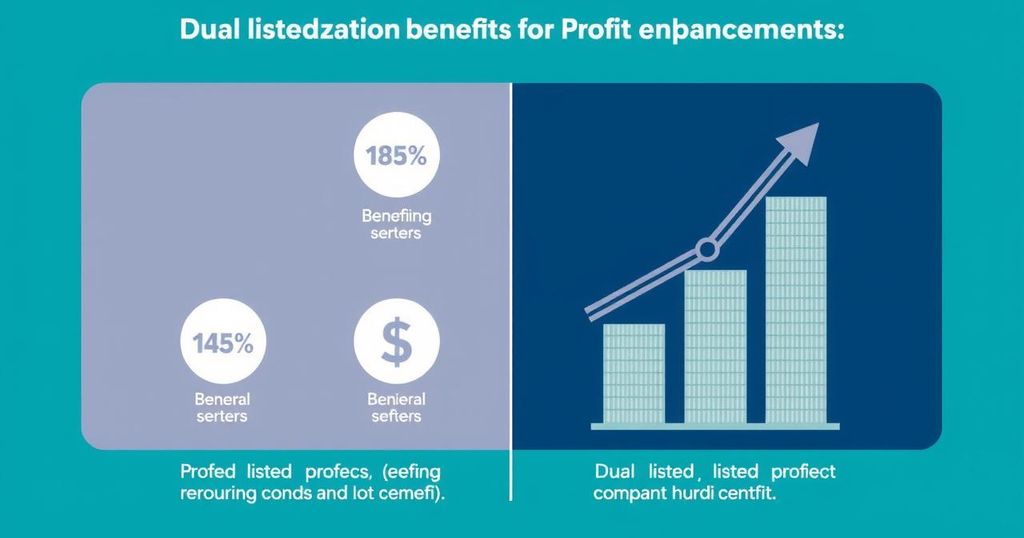Dual-listed companies often inflate profits by presenting adjusted earnings that exclude certain expenses defined by GAAP, complicating investor assessments of true profitability. Notable Israeli firms exhibit significant discrepancies between adjusted and GAAP profits, primarily due to the exclusion of share-based compensation. Investors need to critically analyze these reports to avoid overestimating financial health and future performance.
Dual-listed companies, particularly those traded on the Tel Aviv Stock Exchange and international exchanges such as the U.S. and London, utilize various accounting practices to enhance reported profits. This phenomenon complicates the ability of investors to make accurate evaluations as adjusted profit figures often significantly exceed those calculated under Generally Accepted Accounting Principles (GAAP). For instance, ten of the establishments listed in the Tel Aviv-35 Index are dual-listed, manipulating profit margins by excluding certain traditional expenses from adjusted reports, which leads to an inflated perception of profitability.
Despite initially appearing as a more accurate reflection of financial health, adjusted profit figures obscure certain expenses required under GAAP; this includes share-based payment costs that impact profitability assessments. A notable example is the technology firm NICE, which reported a GAAP operating profit of $391.6 million in contrast to its adjusted figure of $622.4 million when omitting share-based payments, radically altering its financial appearance. Consequently, investors are better served by critically evaluating both GAAP and adjusted reports to ascertain genuine profitability.
Other prominent companies, such as Nova and Camtek, exhibit similar patterns wherein adjusted profits are significantly inflated compared to GAAP figures due to the exclusion of stock option expenses. For instance, Nova’s profits were reported as $152.6 million on an adjusted basis compared to $133.3 million in GAAP reports, revealing another substantial gap largely attributable to share compensation practices. Share-based compensation is a substantial component of the financial landscape for Israeli firms, necessitating more thorough scrutiny by investors to avoid misleading assessments of future profitability potentials.
Moreover, acquisitions and legal provisions further complicate profitability analysis by introducing asymmetries between adjusted and GAAP profits. Companies like Teva have showcased this discrepancy, with their exclusion of goodwill write-offs from adjusted reports, contributing to inflated profit perceptions. Investors must thus approach adjusted reports with caution; substantial differences between adjusted and GAAP profits warrant correction to accurately assess a firm’s financial health and future forecasts.
The practice of dual-listing allows companies to trade their stocks on multiple exchanges, including the Tel Aviv Stock Exchange as well as prominent international platforms. This strategy is prevalent among Israeli firms seeking to enhance their visibility and broaden their investor base. However, it also opens avenues for creative accounting practices that skew financial reporting. The trend of reporting inflated adjusted profits poses challenges for investors, compelling them to critically evaluate the authenticity of each firm’s profitability claims to make informed investment decisions.
In summary, dual-listing firms like NICE, Nova, and Camtek utilize adjusted profit reporting strategies that markedly inflate profitability by excluding crucial expenses recognized in GAAP. This necessitates a meticulous approach from investors who must reconcile the discrepancies between GAAP and adjusted profit figures. As various accounting adjustments may misrepresent actual financial conditions, relying solely on adjusted reports could lead to inflated assessments of a company’s future performance. Therefore, a comprehensive evaluation that considers both forms of reporting is essential for accurate profit analysis.
Original Source: www.calcalistech.com

Leave a Reply